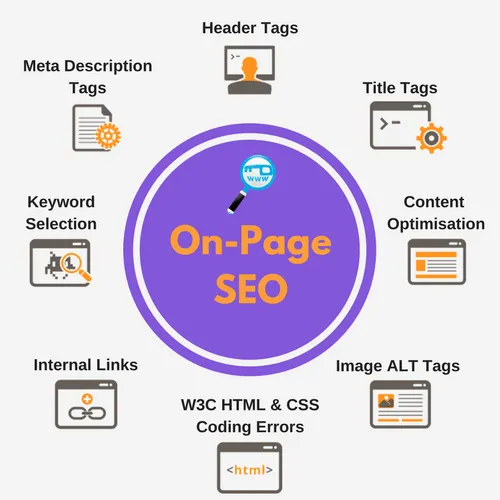Unlocking Success: 7 Ways Semantic SEO Services Elevate Your Online Presence
In today’s competitive digital landscape, simply optimizing your website for keywords is no longer enough to stay ahead. Enter semantic SEO services – a cutting-edge approach that goes beyond traditional keyword optimization to improve the relevance and contextuality of your content. In this article, we’ll explore the transformative potential of semantic SEO services and how they can propel your online presence to new heights.
1. Understanding Semantic SEO Services
Semantic SEO services involve optimizing your website’s content to better match the intent and context of user queries. Rather than focusing solely on individual keywords, semantic SEO takes into account the broader meaning and relationships between words and phrases. By leveraging semantic analysis, natural language processing, and entity recognition, businesses can create more relevant and authoritative content that resonates with both users and search engines.
2. Harnessing the Power of Latent Semantic Indexing (LSI)
At the heart of semantic SEO lies Latent Semantic Indexing (LSI) – a mathematical technique used by search engines to identify patterns and relationships between words in a body of text. By incorporating LSI keywords and related terms into your content, you can enhance its relevance and improve your chances of ranking for a wider range of search queries. For example, if your focus keyword is “digital marketing,” LSI keywords might include “SEO,” “content marketing,” and “social media.”
3. Optimizing for User Intent
In the era of semantic search, understanding and optimizing for user intent is paramount. Semantic SEO services help businesses decipher the underlying motivations and goals behind user queries, allowing them to tailor their content accordingly. By aligning your content with user intent – whether it’s informational, navigational, or transactional – you can attract more targeted traffic and improve conversion rates.
4. Enhancing Content Relevance and Contextuality
Semantic SEO services enable businesses to create content that is not only keyword-rich but also contextually relevant and meaningful. By analyzing the semantics of user queries and search results, you can identify the key themes, topics, and entities that are relevant to your target audience. This allows you to craft content that addresses their specific needs, interests, and pain points, thereby enhancing engagement and driving conversions.
5. Leveraging Structured Data Markup
Structured data markup, such as Schema.org markup, plays a crucial role in semantic SEO. By adding structured data to your website, you can provide search engines with additional context about your content, such as product information, reviews, and events. This helps search engines understand the meaning and intent behind your content more accurately, leading to improved visibility and enhanced search results features, such as rich snippets and knowledge panels.
6. Embracing Natural Language Processing (NLP)
Natural Language Processing (NLP) is a core component of semantic SEO services, enabling businesses to analyze and understand human language in a more nuanced way. By leveraging NLP algorithms and tools, businesses can gain insights into user behavior, sentiment, and intent, allowing them to tailor their content and marketing strategies more effectively. Whether it’s optimizing for voice search, creating conversational chatbots, or generating personalized content recommendations, NLP empowers businesses to connect with their audience on a deeper level.
Must Read: NLP Integration Transforms SEO Practices and Digital Marketing
7. Measuring Success with Semantic SEO Services
When implementing semantic SEO services, it’s essential to track and measure the impact of your efforts. Key metrics to consider include organic traffic, keyword rankings, click-through rates (CTRs), and engagement metrics such as time on page and bounce rate. Additionally, tools like Google’s Natural Language API and semantic analysis platforms can provide valuable insights into the semantic relevance and contextuality of your content, helping you refine your strategy over time.
Conclusion
Semantic SEO services represent a paradigm shift in the world of digital marketing, offering businesses the opportunity to create more relevant, engaging, and impactful content. By harnessing the power of semantic analysis, LSI keywords, structured data markup, and NLP, businesses can enhance their online presence, attract more targeted traffic, and drive meaningful interactions with their audience. Whether you’re a small business or a multinational corporation, embracing semantic SEO services can unlock new opportunities for growth and success in today’s dynamic digital landscape.






